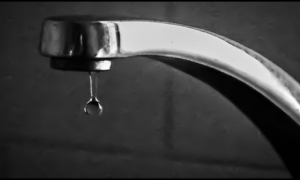Water Becoming A More Costly Resource…
November 8, 2023
…AND More Scarce Every Year!
REPOSTED From April 2023
Whether its drought, pollution or access, it can’t be separated from the idea of greener living. Despite the presence of Lake Michigan, we’ve watched in real time as fresh water becomes a more and more scarce resource worldwide.
As it does, it becomes more and more costly too. Making a difference can almost immediately help your pocketbook! As it goes up in cost becomes more and more…like a luxury. Something we should continue keeping in mind in perpetuity.
In Chicago, the cost of our Water and Sewer service, continues to increase every year. Most recently, annual increases were tied to the rate of inflation, and as we know that means we can expect quite a bump this year in what a gallon of water costs. (City of Chicago Water & Sewer Rates) Last year it was 5% based on the previous years inflation rate. We can expect that to be quite a bit higher this year – perhaps as much as 9%. UPDATE – very fortunately, the City capped the increase this year at 5%.
The good news for the Park Tower Community, is that for the past couple years our water use has [trended] down. The reduction in our consumption has helped somewhat cushion the increase in rates. Inflation being what it is today, we don’t want to take that for granted. We can’t expect water use to go down to zero, so at some point I’d expect our use to bottom out or even increase. Below you’ll find our “50 Household Tips For Saving Water”, posted again for residents who’ve moved in over the past year and to remind everyone else what they can do to reduce consumption. Even just a few drops a day per person can add up very quickly. Multiply that times 1500 people, and it’s a huge difference.
Before that though, I also came across a great article from CNN online:
“How To Save Water At Home
Saving water can help us deal with the climate crisis. Here’s how to reduce your use.
Editor’s Note: Sign up for CNN’s Life, But Greener newsletter. Our limited newsletter series guides you on how to minimize your personal role in the climate crisis — and reduce your eco-anxiety.
CNN —The reliability of our faucets providing water every time we turn them on can make water seem like a magical, never-ending resource.
But abusing the availability of this finite resource can contribute to water scarcity and harm our capacity to deal with the impact of the climate crisis.
‘Four billion people today already live in places that are affected by water scarcity at least part of the year,” said Rick Hogeboom, executive director of the Water Footprint Network, an international knowledge center based in the Netherlands. “Climate change will have a worsening influence on the demand-supply balance,’ he said….”
Get the rest directly from the source at CNN Online: https://www.cnn.com/2022/11/16/world/ways-to-save-water-climate-environmental-benefits-wellness-scn-lbg/index.html
And here’s our 50 Tips:
Responsible Water Use – 50 Household Tips For Saving Water
From “WaterUseItWisely.com”
Edited by Property Manager Tim Patricio
There are a number of ways to save water, and they all start with us. So, we learn what we can do and change our habits! The more we can change, the more we can save!
For Park Tower Owners and Residents, saving water is both saving water as a resource and now more than ever MONEY. The cost of water, and the budget has just about TRIPLED over the last decade. We continue to budget more $$$ each year for Water, than Electricity and Natural Gas! As that cost has increased, so has assessments and rents to compensate.
Here we go, and not in any particular order of significance:
When washing dishes by hand, don’t let the water run. Fill one basin with wash water and the other with rinse water. If you have one basin, use it as the wash basin and rinse one dish at a time. Turn off the water while you scrub your dishes.
Dishwashers typically use less water than washing dishes by hand. Energy Star branded dishwashers save even more water and energy, and generally continue to be the most trusted options on the market.
If your dishwasher is new, cut back on rinsing before putting dishes inside. Newer models clean more thoroughly than older ones. BUT DO YOUR RESEARCH, before choosing your dishwasher.
Designate one glass for your drinking water each day, or refill a water bottle. This will cut down on the number of glasses to wash. (And reusing water bottles is smart – remember the “Three R’s”, reduce, reuse and recycle.)
Soak pots and pans instead of letting the water run while you scrape them clean.
Use garbage disposals sparingly. Instead, compost vegetable food waste and save gallons every time. Block Bins are now available at Park Tower. For more information visit: https://www.ptcondo.com/environmental-and-fiscal-concerns-intertwine-at-park-tower/.
NEW garbage disposals are prohibited at Park Tower. These devices are very bad for high rise plumbing. As they grind food up, it essentially becomes a paste like cement, which coats the pipes and can cause deterioration and clogging. Long ago, the policy was different, and at present units with old disposals are ‘grandfathered’ as a courtesy.
Wash your fruits and vegetables in a pan of water instead of running water from the tap.
Don’t use running water to thaw food. For water efficiency and food safety, defrost food in the refrigerator or microwave. This can actually save water and electricity. If you are relying on warm water to attempt to thaw something, a microwave may actually use less energy than it took to heat the water being wasted.
Install an instant water heater near your kitchen sink so you don’t have to run the water while it heats up. This also reduces energy costs.
Keep a pitcher of drinking water in the refrigerator instead of running the tap. This way, every drop goes down you and not the drain.
Reuse leftover water from cooked or steamed foods to start a nutritious soup or broth, it’s one more way to get eight glasses of water a day. When boiled, nutrients from vegetables seep into the water. Soup, rice or noodles can be made with the water that remains.
Cook food in as little water as possible. This also helps it retain more nutrients in the food.
Select the proper pan size for cooking. Large pans may require more cooking water than necessary.
If you accidentally drop ice cubes, don’t throw them in the sink. Drop them in a house plant instead.
Collect the water you use while rinsing fruit and vegetables. Use it to water house plants.
When shopping for a new dishwasher, watch for the “HE” (High Efficiency) and “ENERGY STAR” logos, and compare water use between models. There is an abundance of information online about this and other types of appliances for energy and water usage.
When doing laundry, match the water level to the size of the load.
Washing dark clothes in cold water saves water and energy, and helps your clothes retain their color.
When shopping for a new clothes washing machine, watch for “HE” (High Efficiency) and Energy Star logos. Some can save up to 20 gallons of water per load – again there is an abundance of information available online.
If your shower fills a one-gallon bucket in less than 20 seconds, replace the showerhead with a WaterSense® (EPA) labeled model.
Shorten your shower by a minute or two and you’ll save up to 150 gallons per month.
Time your shower to keep it under 5 minutes. You’ll save up to 1,000 gallons per month.
Toilet leaks can be silent! Be sure to test your toilet for leaks at least once a year.
Put food coloring in your toilet tank. If it seeps into the bowl without flushing, there’s a leak. Fix it and start saving gallons.
When running a bath, plug the bathtub before turning on the water. Don’t wait for the water to get to your preferred temperature. Adjust the temperature as the tub fills. This will save water and energy.
Upgrade older toilets with water-saving WaterSense® (EPA) labeled models.
If your toilet flapper doesn’t close properly after flushing, replace it.
Use a WaterSense® (EPA) labeled showerhead. They’re inexpensive, easy to install, and can save you up to 500 gallons a month.
Turn off the water while you brush your teeth and save up to 4 gallons a minute. That’s up to 200 gallons a week for a family of four.
If your toilet was installed before 1992, purchasing a WaterSense® (EPA) labeled toilet can reduce the amount of water used for each flush.
Consider buying a dual-flush toilet. It has two flush options: a half-flush for liquid waste and a full-flush for solid waste.
Plug the sink instead of running the water to rinse your razor and save up to 300 gallons a month.
Turn off the water while washing your hair and lathering, and save up to 150 gallons a month.
You can also consider purchasing a “Shut Off Adapter” for your shower. You just push a button while you are lathering or washing your hair, and turn it back on when you are ready to rinse. It is about a $11 part. Learn more, Click Here, or GOOGLE “Shower Shut Off Adapter”.
When washing your hands, turn the water off while you lather.
Take 5-minute showers instead of baths. A full bathtub requires up to 70 gallons of water.
Install water-saving aerators on all of your faucets. Aerators not only save water, but by adding bubbles to the water, it makes the jet of water grittier and more effective for rinsing hands and dishes.
Drop tissues in the trash instead of flushing them and save water every time.
Look for WaterSense® (EPA) labeled toilets, sink faucets, urinals and showerheads.
RULE OF THUMB – One drip every second adds up to five gallons per day! Check your faucets and showerheads for leaks, and report them right away.
While you wait for hot water, collect the running water and use it to water plants.
Teach children to turn off faucets tightly after each use.
Watch the “Home Water Challenge” video or use the “Home Water Audit Calculator” to see where you can save water. (Locate via GOOGLE!)
KEEP IN MIND – Information we look up online won’t always be relevant to Park Tower, or high rise living in general. But information you review and consider may help you in the future. The overall point is the same – save water when and where you can.
Encourage your school system and local government to develop and promote water conservation among children and adults.
Reward kids for the water-saving tips they follow.
Be a leak detective! Check all hoses, connectors, and faucets regularly for leaks. Listen and report strange noises from the walls adjacent to plumbing fixtures. Particularly in a high rise setting such as Park Tower – if you here something strange around the vicinity of pipes and fixtures, MOST are directly adjacent (up and down and/or back to back) to pipes and fixtures serving other units. There could be running water or worse; leaking and flooding is not only a waste of water but can do extensive damage!
Reuse your towels, before tossing them in the laundry.
Make suggestions to your employer and schools about ways to save water and money.
Run your washer and dishwasher only when they are full. You can save up to 1,000 gallons a month.
Don’t ever leave a fixture running unattended, or without a purpose.








